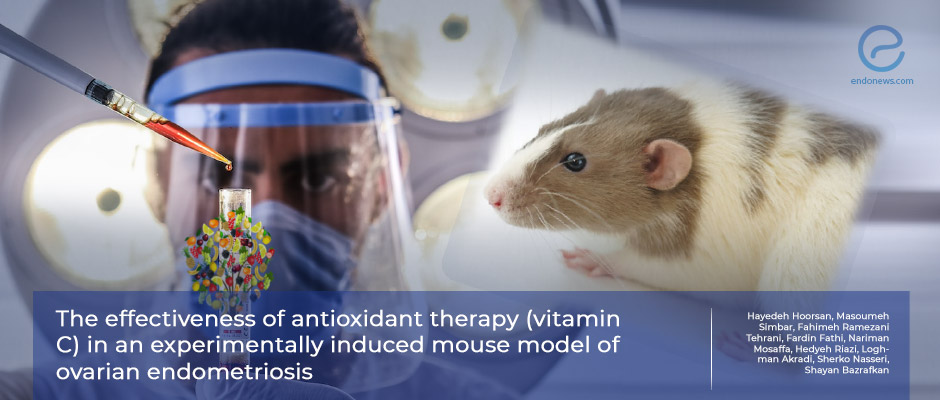Vitamin C as a possible therapeutic agent in endometriosis
Sep 30, 2022
An experimental mouse study indicates Vitamin C has favorable effects on endometriotic lesions
Key Points
Highlight
- Decreasing the levels of reactive oxygen species in endometriosis by using Vitamin C as a therapeutic agent may have many valuable effects in treating the disease and improving its outcome.
Importance
- Endometriosis causes an active oxidative stress state, affecting many systems throughout the body, including the individual's fecundity.
- Vitamin C offers promising results with its potent antioxidant, anti-inflammatory, and immune stimulator effects in endometriosis.
What’s done here
- This double-blind placebo-controlled randomized experimental study aimed to investigate the effects of Vitamin C as a therapeutic agent in ovarian endometriosis mouse models.
- The mice were induced with ovarian endometriotic implants, and then Vitamin C was administered orally to the treatment group for four days.
- The changes in both placebo and treatment groups were statistically analyzed.
Key results
- Significant decreases in lesion volume, weight, adhesion, extent, and severity were detected in the treatment group.
- The epithelialization of implant tissue score and trichrome fibrosis scores were analyzed histopathologically and were found to be statistically significantly lower in the treatment group.
- The lesions’ volume and weight continued to increase in the control group during the study.
- The number of follicles and corpus luteum in the vitamin C treatment group increased compared to the placebo group.
Limitations
- Being an experimental study with a small number of mice per group
- The lack of using various doses in groups
- Not comparing the effects of a well-known antioxidant agent or a gonadotropin-releasing hormone agonist
Lay Summary
A rather toxic environment is generated with the production of reactive oxygen species by the immune cells in endometriosis. The anti-oxidant metabolism is also altered which results in a state of oxidative stress. As a potent antioxidant, Vitamin C has many effective properties such as anti-inflammatory, anti-angiogenic, and immune stimulator and thus, it is thought to prevent the development of endometriotic lesions.
With the increasing need for novel therapeutic agents, many studies have been focusing on non-hormonal methods in endometriosis treatment. With this aim, Hoorsan et al. investigated the therapeutic effects of Vitamin C on an experimentally induced ovarian endometriosis mouse model. The study was published in the May 2022 issue of the journal Women’s Health.
Fourteen mature, virgin female mice were used in the study. Firstly, implants from the uterine horn were placed in the ovaries of the mice and four weeks later the endometriotic implants were measured. After being divided into two groups as control and treatment, the mice in the treatment group were given Vitamin C every two days orally for four weeks. Following the treatment, the samples were collected and analyzed histopathologically.
Results showed that the post-treatment volume, growth score, adhesion extent score, adhesion severity score, the difference between the median weight of the endometriotic implants, the epithelization of the implant tissue, and fibrosis scores of the treatment group were all significantly lower compared to the control group. Another finding regarding the fecundity changes was that the number of follicles and corpus luteum increased after the administration of Vitamin C.
The authors state that even though no animal model can completely exhibit the human conditions of endometriosis, this study puts forward a novel experimental model using ovarian induction. When compared to other studies that used the peritoneal and subcutaneous induction method, it can be seen that similar results were obtained regarding the effects of Vitamin C on endometriotic implants. The fecundity function of the ovaries was improved significantly as well. They also reveal that Vitamin C may play a protective or therapeutic role in endometriosis, however, further research and clinical trials are urgently needed to start using Vitamin C as a novel therapeutic agent in endometriosis.
Research Source: https://pubmed.ncbi.nlm.nih.gov/35509242/
endometriosis experimental model Vitamin C

